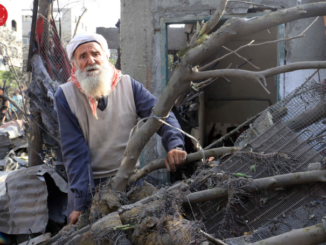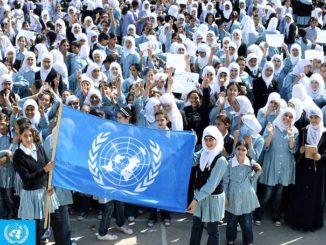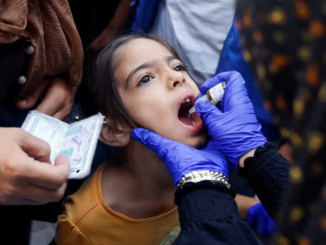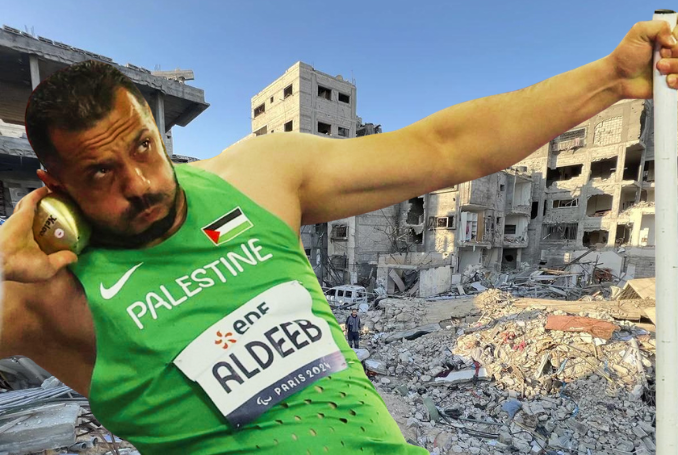
Fadi’s career has been anything but average, having been rendered paraplegic in 2001, during the Second Intifada, after an Israeli soldier shot him in his spine.
At this year’s Paris Paralympic Games, Palestine’s sole representative is a paraplegic Shot Put athlete who defied all odds after suffering a life-changing injury at the hands of an Israeli soldier.
Traveling to Europe to pursue his dreams, the war in Gaza dealt him an even more severe wound than the bullet that changed his life in 2001.
Fadi Aldeeb, who was this year’s only Paralympic athlete to represent Palestine, stuck around in Paris after falling short in the F55 Men’s Shot Put and decided to speak to the media about the suffering ongoing in the Gaza Strip.
“I’m here as a Palestinian to give the world a message that Palestine is here, we are not dying and there’s people searching in Gaza, in Palestine, for humanity, human rights and everything like this,” he commented to the media prior to competing.
At the Paralympics, Fadi Aldeeb, who lost his brother in an Israeli attack, raises Palestine's flag in Paris as resistance https://t.co/HWux35LIAx pic.twitter.com/HmMOf9DnOC
— AJE Sport (@AJE_Sport) September 3, 2024
“When we are raising the flag here in Paris, we are (showing we are) still alive, we still need our human rights, we still need our freedom” he added.
On top of competing in Shot Put, Fadi Aldeeb is also a professional wheelchair basketball player, a career which served as a ticket out of the Gaza Strip.
Despite being able to bring his wife and children over to Turkiye in 2016, he says that he hasn’t been able to see them in two years as they cannot receive Visas to France, while he says he cannot return to Turkiye without returning to Gaza first.
Fadi’s career has been anything but average, having been rendered paraplegic in 2001, during the Second Intifada, after an Israeli soldier shot him in his spine. Despite this and surviving numerous wars, he still managed to pursue his dreams as an athlete against all odds.
However, when the genocide in Gaza began on October 7, he was again faced with new odds and this time they weren’t physical.
On December 6, while Fadi was playing a French league wheelchair basketball game, he received numerous calls from his brother who was staying in their family home in the Shejaiyeh neighborhood of Gaza City. “I tried to call back, but there was no connection,” he told Reuters news agency.
The very next day, he received the horrifying news: “Your brother was killed in an attack on our building”.
He's lost 17 relatives to Israel’s genocide, but Gaza’s Fadi Aldeeb is still going to compete in Paris.
The Paralympian said he wants to win so he can raise the Palestinian flag. pic.twitter.com/mjQwC4DR8R
— AJ+ (@ajplus) August 28, 2024
Fadi said that the thought often passes through his mind as to what his brother’s final thoughts were and what would have said if he had been able to answer his call. After competing in the Paris 2024 Paralympic Games, he held back tears as he told the media the following:
“I received a call from his daughter, she’s like, 7 years old. I never ever can forget this,” Aldeeb said, fighting tears.
“She asked me, ‘Uncle, I know he’s died and he goes – Inshallah – to Jannah, but I want his body. I don’t need his body to stay under the building, and the dogs start eating his body.’ Imagine, a child 7 years old, speaking like this.”
After this, Fadi said that he struggled to find the point of even competing in sports altogether and said he was really struggling with coping.
When the call then came that he had been selected to compete at the Paralympics, he said that he dropped the phone and began crying and realized that he had now been given the platform to speak up for his people.
Although Fadi’s awe-inspiring resilience is an example of hope that no matter what the odds are, the human spirit can in the end triumph, most Palestinians who are disabled as a result of Israel’s targeting of civilians do not have the opportunity to achieve their dreams, remaining trapped in occupied territory and surrounded by the Israeli army.
In the first few months of the war on Gaza alone, more than 1,000 children had to have one or more limbs amputated, while the ability to keep track of all of those who have suffered life-changing injuries has disappeared.
?"I hope the world can give us the same human rights and to look at Palestinians as human."
?"We are not animals"
?"We have hopes. We have dreams. We have goals."
Incredibly powerful words from Palestine's Paralympian Fadi Aldeeb.
?️Aisling O'Reilly pic.twitter.com/2vKAbuHtmH
— Off The Ball (@offtheball) September 5, 2024
The crisis of Palestinians who have been left disabled due to Israeli bullets and bombs is not confined to the past 11 months, however, yet what is new this time is the sheer scale.
For example, during the Great March of Return that took place between 30 March 2018 and 22 March 2019, some 29,000 peaceful Palestinian protesters were injured by Israeli forces. Of those injured, in 2018 alone, at least 122 had to have their limbs amputated.
The Great March of Return was an overwhelmingly non-violent protester movement, where civilians would dance, make food, fly kites and burn tires, while some got closer to the militarized Israeli walls and fences – which were behind barbed wire roles – to throw stones at Israeli snipers that were positioned in guarded areas.
The Israeli snipers killed women, children, journalists, paramedics and even wheelchair-bound protesters, many of them over 100 meters away from the fence.
“The shocking scale and horrific nature of the debilitating injuries inflicted by Israeli forces on Palestinian protesters in Gaza last year suggests Israel pursued a deliberate strategy to maim civilians,” Saleh Higazi, Middle East and North Africa Deputy Director for Amnesty International, said in March of 2019.
There is currently no complete data that can even give us an accurate estimate of how many Palestinians who been disabled by Israeli violence. However, we do know from the UN Committee on the Rights of Persons with Disabilities (CRPD) that prior to October 7, 2023, in the Gaza Strip alone there were a total of 58,000 people who had registered disabilities and who have been subjected to Israel’s genocidal onslaught.
(The Palestine Chronicle)
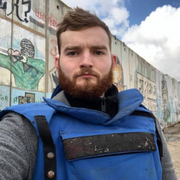
– Robert Inlakesh is a journalist, writer, and documentary filmmaker. He focuses on the Middle East, specializing in Palestine. He contributed this article to The Palestine Chronicle.

